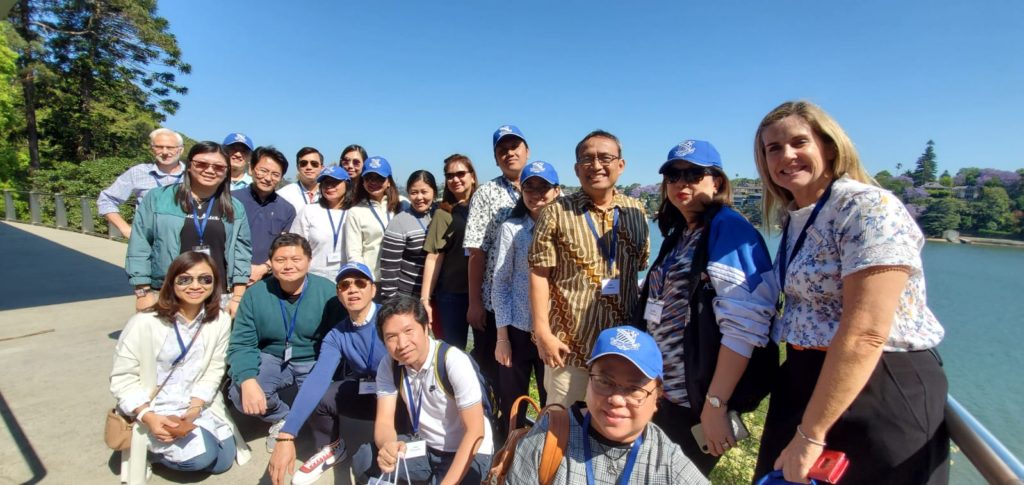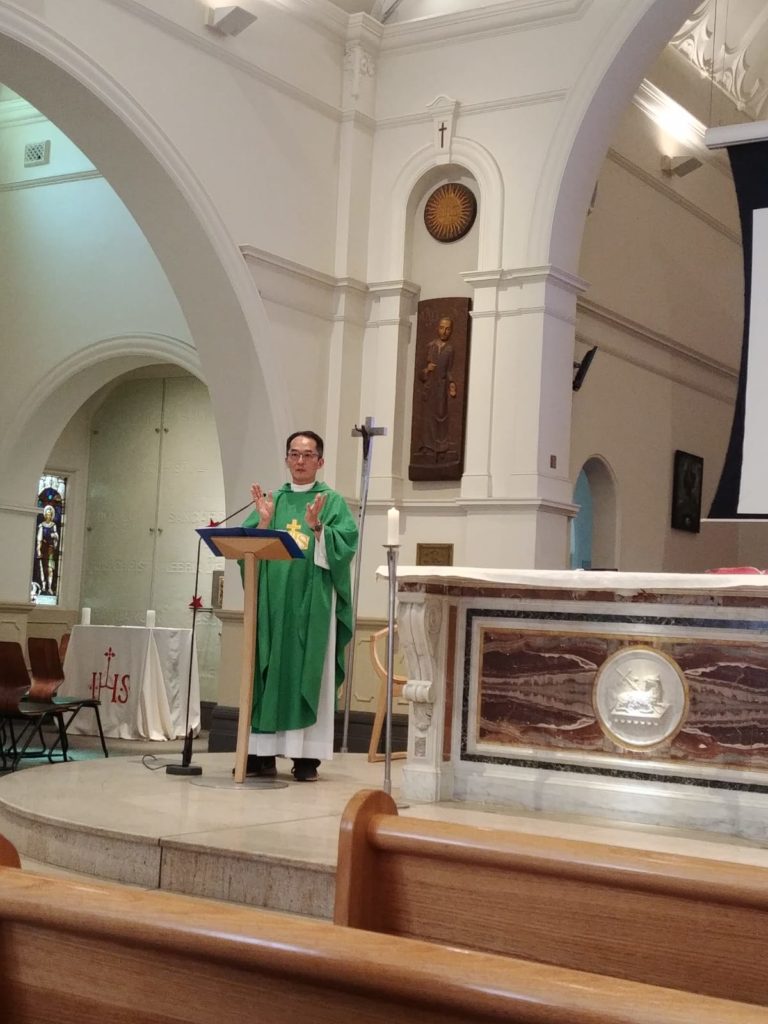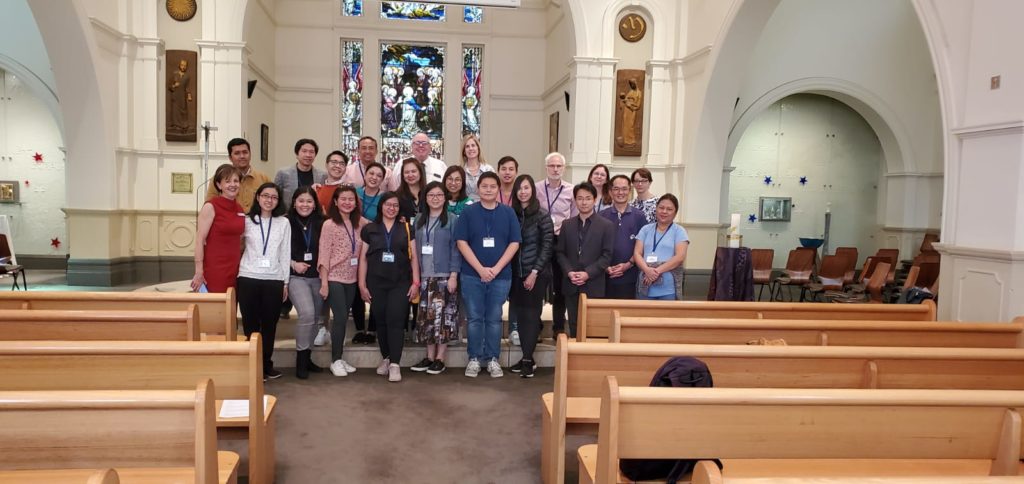The following reflection was written by Fr. Clement Tsui SJ, the education delegate of the Chinese Province.
The Ignatian Teachers Program (ITP) was held on 11-15 November 2019 at St. Ignatius’ College, Riverview in Sydney, Australia. There were eighteen participants from the following: the Philippines, Indonesia, Japan, Macau, and Hong Kong. Most of them were experienced teachers, with a few school directors, administrators, and school chaplains.

Located near Lane Cove River, St. Ignatius’ College has beautiful Jacaranda trees on the campus. Walking along the main building and the rose garden allowed each participant to savor the long tradition of this Jesuit school.
The workshop began every morning with a meaningful prayer session guided by Mr. John Gills, the school’s Director of Religious Formation. The specially designed prayers helped the participants each day to open themselves to the movements of the Holy Spirit. After all, the discernment of the Holy Spirit’s promptings is at the very core of Ignatian Spirituality, which is the basis of Jesuit Education.
On the first day, participants were provided the opportunity to reflect on the history and tradition of the Ignatian approach to teaching – or what we call Ignatian Pedagogical Paradigm (IPP). The IPP pays special attention to the context of the students. Participants reflected on how the IPP enables them to accompany their students with IPP, to know their needs and to promote learning more effectievely.
The most striking experience for many of the participants occurred on the second and third day: The “Through the Eyes of the Student” Program. Special thanks to Ms. Sharon Mclean and the other facilitators who arranged for each participant to accompany a student for one entire school day. The participants shadowed a student assigned to them, learning through observation what the students experienced. It was a challenge for many because they should focus on the students without criticizing them. They were not supposed to tell the students what to do. Rather, they were asked to listen and to try to find how the students felt. At the end of the day, we were all grateful for this one-day one-of-a-kind experience. We became more aware to our students’ needs, and we gained new insights about learning and teaching through this unique experience.
On Day Four, there was a session where participants shared their experiences and practice of the IPP in their respective schools. Aside from learning about the diverse ways IPP is implemented, the participants learned from each other. For example, students can practice Examen in various ways depending on the school’s context. We felt encouraged that each Jesuit school was concerned about their students’ holistic growth including participation in social services for the poor in their societies.
For example, students from the Sacred Heart School-Ateneo de Cebu High School are required to work in Jollibee Fastfood as part of their service. They offered their wages to support some poor families. Students from Canisius College served as volunteers to clean up rubbish on the public streets of Jakarta.
The participants realized not only the diversity of their situations, but also their unity as a worldwide community dedicated to a common mission. It was important to build the network of each school.
After the sharing, the educators visited the teachers of the school’s special education unit–providing yet another opportunity to learn a different way of accompanying our students.
On Day Five, Ms. Jennie Hickey, the Executive Director of Jesuit Education Australia, introduced the Jesuit education apostolic work in the JCAP. She insisted that Jesuit education was a mission for the service of the poor as St. Ignatius of Loyola and the First Companions had intended. The Society of Jesus has always worked for faith and justice.

There are many challenges in carrying out this mission as fewer Jesuits worked in schools today. It is important for Ignatian educators to realize that they are called to dedicate themselves to the mission. Though our contexts are different, we still share the common mission.
Finally, the workshop ended with a Eucharistic Celebration at the school chapel: We thanked the Lord for the abundant graces that we received. Besides the formal sessions, we appreciated the informal conversations and sharing among ourselves during the breaks and over the meals.

Lastly, we express our gratitude to the team of facilitators: Ms. Sally Tranter, the deputy principal, Ms. Jennifer Jackson, Ms. Rebecca Marren and Mr. Gus Masters who for sharing themselves with us during this successful workshop. All for the greater glory of God!